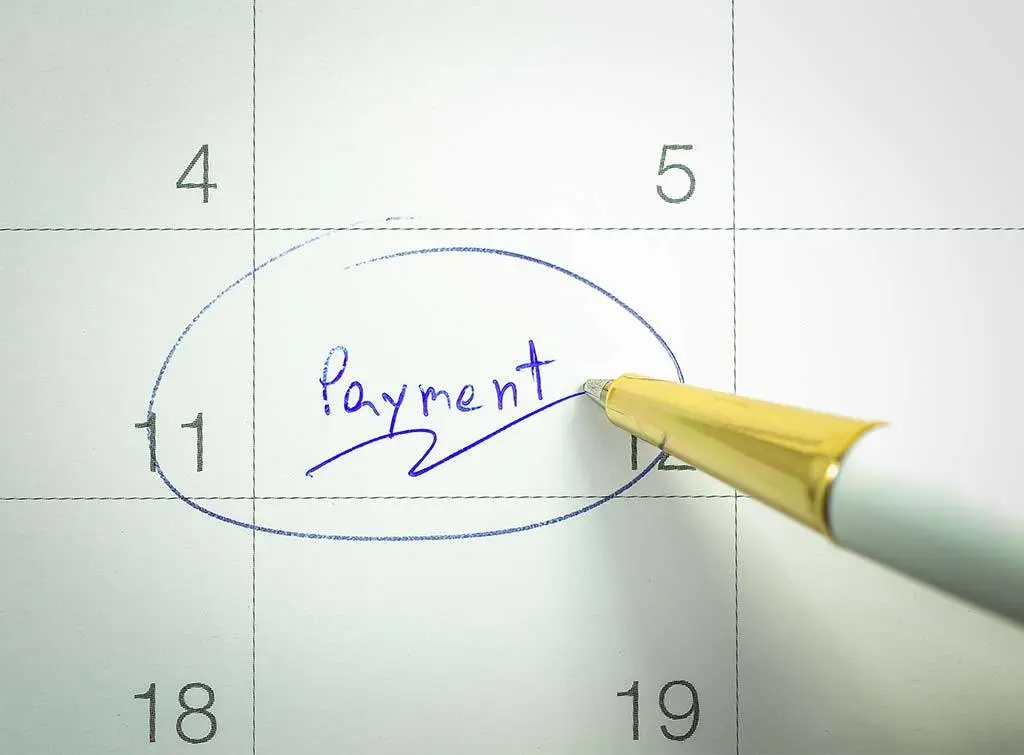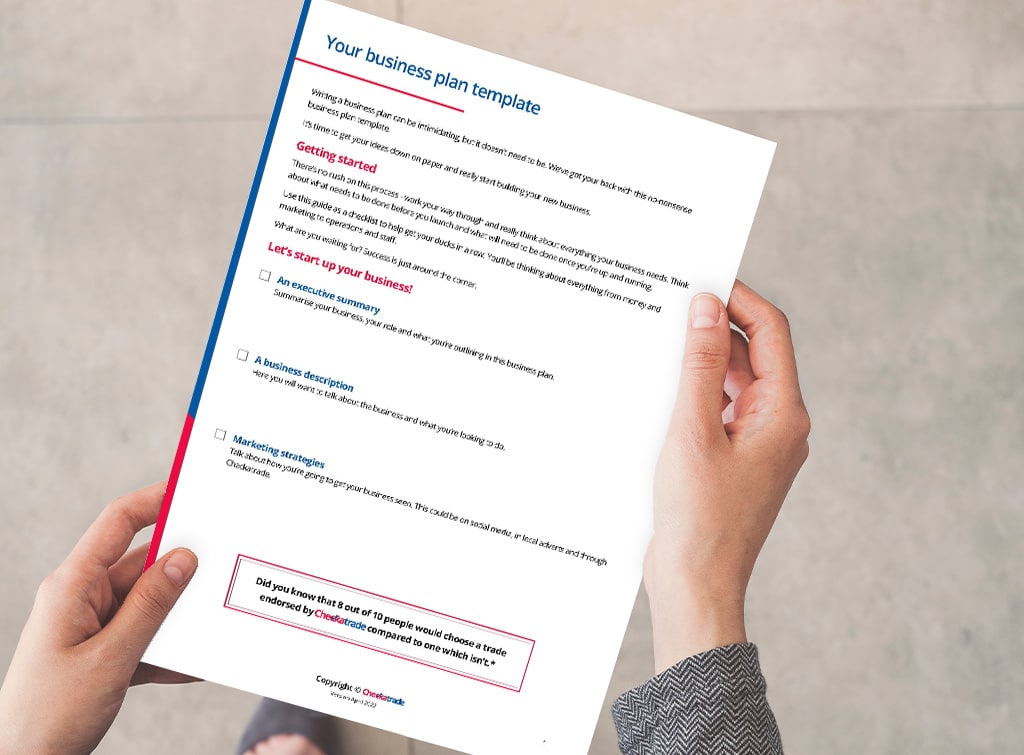Blog>Trade>Finance>Simple tips for how to manage cash flow
Last updated: 6 February 2025
Simple tips for how to manage cash flow
Managing cash flow for trade businesses of all sizes is challenging. Find out in this article what cash flow means and why keeping it under control is so important.

Understanding cash flow management
Whether you’re an experienced business owner or just starting out, you can't ignore cash flow management.
A small trade business needs to manage cash flow because every penny counts. Larger national and regional businesses face bigger movements of cash. That can include significant monthly monthly payrolls and high tax bills.
Whatever your size, the mechanics of managing cash are broadly similar. Let's start by looking at what cash flow management means.
What is cash flow management?
Cash flow management is all about making sure you save more money than you spend. By doing this, you can be sure that your business is profitable enough to grow.
To do this properly, you need to manage your business income against your outgoings. This means monitoring things like:
Day-to-day expenses
Business investments
Business taxes
A big-paying job will not produce profitif your overheads are too large. Also getting paid later will not help if you need to pay a bill now.

Why is it important to manage cash flow?
Poor cash flow management is one of the key issues for small businesses. A business in control of its cash flow is more likely to have money in the bank to meet payments.
Not only that, but if done right, you’ll probably have money left over after all expenses to invest in your trade business.
Take control of your cash flow and sales leads
We support trade businesses of all sizes across a range of industries
Simple cash flow management techniques
So, with the importance of cash flow highlighted, what are some of the ways you can manage it effectively? Well, the good news is there are lots of simple things you can start doing today to improve profitability. It's all about improving your cash flow.
How to improve cash flow for trade businesses
What keeps tradespeople awake at night? Worrying about getting paid on time and settling your bills is probably a contender. Often, it all comes down to cash flow. Poor cash flow can quickly bring down even a successful business. Keep in control It doesn't matter whether you're a small or large
Here are some of our favourite tips:
1. Forecast and plan
One primary way businesses of all sizes manage cash flow is through forecasting and planning.
A cash flow forecast lets you project your earnings alongside your business outgoings over months or years. That way, you can see what your likely expenditures will be and how your earnings compare.
With a cash flow forecast in hand, you’ll have a much clearer idea of your future finances. This in turn will allow you to plan ahead and devise a strategy of how to handle quieter months.
To create a cash flow forecast, we recommend doing the following:
If you're just starting up, think about how much you’ll need to spend on initial investments like tools, transportation, and materials
Be sure to record the work you have coming up in the pipeline or the work you're looking to win, so you can factor these into your calculations
Note down the amount you'll earn from those jobs
List all the business expenses associated with those projects
Tally both of these up separately and then compare the figures to see how your finances are looking
Of course, there’s far more that goes into a cash flow forecast than this. We cover this in more detail in our business plan guide. So, be sure to check that out as well.
How to write a business plan
Why use a business plan for a small business? Every business needs to create a business plan. But what is it? A business plan is a written document that outlines: 1. Where you are now 2. Where you want your business to be in the future 3. How you're going to get there. A clear business plan will
2. Separate and save money
Another great way to ensure that you have funds to support your business is with a business savings account.
This sort of account can be used to:
Set aside money in advance for larger bills like taxes and VAT
Earn interest on cash you don't need to hold in your main business account
Take control of your cash flow and sales leads
We support trade businesses of all sizes across a range of industries
On top of this, you should build up a contingency fund to act as a financial buffer. This sort of step can be an absolute lifeline in many scenarios, including:
If customers pay late
Expensive repairs to business vehicles, equipment and machinery
If you can’t work for unforeseen reasons.
Of course, the size of your contingency fund needs to be relative to the payment terms of your business.
For example, if you have a 30-day payment term, you need a contingency fund equivalent to three months' income. This will help keep your cash flow in a healthy position if a customer is late paying their invoice.

3. Keep on top of your payments
It should go without saying, but one way to ensure your business always has funds is by meeting your payments.
Not only will doing this on time stop you from worrying about late payment fees, but it’ll also boost your credit score. This is great as it will make it easier for you to get emergency funding in the future.
But to do this effectively, you need to make sure you’re paid on time. Here are the steps we suggest to ensure you’re paid by your customers:
Set out clear payment terms with your customers so you get paid on time. You can include this on your invoice, and if you choose to apply an interest rate for late payments, outline this on the invoice too
Invoice promptly once the work is complete to avoid unnecessary delays in being paid
Make sure your business is set up to accept online payment or payment by card
Follow up on late customer payments sooner rather than later. The quicker you act, the better the chance of you getting paid
Take control of your cash flow and sales leads
We support trade businesses of all sizes across a range of industries
4. Make use of online accounting software
Last, but not least, if you’re not mathematically inclined, then online accounting software can be your best friend. Able to take away the complexity of number juggling, you can save yourself time and hassle once you’re set up.
There are plenty of ways you can improve your business with technology.
7 ways to improve your business with technology
Technology has become an essential part of our day-to-day lives, and this is also true for business owners. If you're looking to make your business work more efficiently to become more profitable, technology is a great way to achieve this. Let's take a look at the many ways that technology can
How to increase your cash flow quickly
So, we’ve covered our top tips for effective cash flow management. But what do you do if you need to increase cash flow immediately? You could hunt for more work, but this isn’t always possible.
Instead, it’s often much smarter to reduce your overheads for an immediate impact. Here are our top tips on just how to do this:
1. Negotiate with your suppliers
With most suppliers**, immediate or seven-day** payment terms are considered the norm. For trade businesses, however, this can be tricky. It could mean having to pay suppliers before your customers pay you.
If you find that this is an issue, it’s worth sitting down with your regular suppliers to find a solution. You can do this by:
Proving to them that you’re a loyal customer
Negotiating better payment terms - in some cases, these can amount to at least 30 days.
Alternatively, look for new suppliers. There are a number of trade suppliers, so find one that works best for your business.

2. Reduce your overheads
Keeping on top of business expenses improves cash flow. If you’ve been paying the same for your business rent for a while, you might want to consider challenging this.
Be it a phone bill, insurance, or other overheads, making clear your payment cost situation could reduce your prices overall. Or, alternatively, you could switch providers.
Start by listing your overheads, then highlight the ones you think you could change. You’ll be surprised by what a difference you can make with this one simple act alone.
Take control of your cash flow and sales leads
We support trade businesses of all sizes across a range of industries
3. Improve workplace efficiency
You may think that efficiency has little to do with cash flow, but that couldn’t be farther from the truth. After all, the more efficient you are, the faster you can finish a job and the quicker you can invoice.
Increase efficiency by automating administration tasks like email responses, appointments and quick quote generation. This will help you to:
Save time
Reduce business costs
Use fewer resources
Maximise how you spend your business hours
4. Increase profitable services
Regardless of your trade, some services are going to have a higher profit margin than others. Therefore, make sure you take the time to review the profitability of your service offering to focus your work effectively.
Dedicating more time to bidding for high-profit jobs compared with low-income opportunities should bring in more money. This in turn will give you a greater turnover and income overall.

Look beyond cash flow to run your business more effectively
Those were just our top tips to look at with your cash flow management. But did you know you can benefit even more by signing up with Checkatrade? Our members receive help with new enquiries, plus a number of other benefits with a Checkatrade membership too.
They include:
Dedicated membership advice team
Work guarantee up to £1,000
Exclusive offers and discounts
Reduced cost of workwear and branding
Savings on other business essentials such as vans and materials
Is a Checkatrade membership worth it?
One way to figure out whether the cost of something is worth it is to look at ROI (Return on Investment). In its most basic sense, this is how much something costs compared with the income it generates. Working out the ROI of a Checkatrade membership is definitely a must-do for any trade business
Key takeaways
Cash flow management is all about saving more than you spend
Good cash flow management helps you have enough to meet future and unforeseen payments
Cash flow management techniques include forecasting and planning
You can improve cash flow quickly by negotiating payment terms with suppliers, reducing overheads, improving efficiency and focusing on profitable jobs
Ready to take your business to the next level?
We can help you get there
DISCLAIMER
This is information – not financial advice or recommendation. The content and materials featured or linked to on this blog are for your information and education only and are not intended to address your particular personal requirements. The information does not constitute financial advice or recommendation and should not be considered as such. Checkatrade website is not regulated by the Financial Conduct Authority (FCA), its authors are not financial advisors, and it is therefore not authorised to offer financial advice.






